-
 Bitcoin
Bitcoin $83,818.1285
1.19% -
 Ethereum
Ethereum $1,813.8273
1.27% -
 Tether USDt
Tether USDt $0.9997
-0.01% -
 XRP
XRP $2.1250
3.48% -
 BNB
BNB $596.7493
0.64% -
 Solana
Solana $121.2008
5.27% -
 USDC
USDC $1.0000
0.01% -
 Dogecoin
Dogecoin $0.1698
4.33% -
 Cardano
Cardano $0.6591
1.51% -
 TRON
TRON $0.2375
-0.84% -
 UNUS SED LEO
UNUS SED LEO $9.1951
-4.76% -
 Chainlink
Chainlink $12.8892
1.68% -
 Toncoin
Toncoin $3.3131
-5.81% -
 Stellar
Stellar $0.2583
-0.21% -
 Avalanche
Avalanche $18.1653
0.47% -
 Sui
Sui $2.2414
3.02% -
 Shiba Inu
Shiba Inu $0.0...01231
1.76% -
 Hedera
Hedera $0.1635
1.61% -
 Litecoin
Litecoin $84.7103
1.75% -
 Polkadot
Polkadot $4.0184
0.11% -
 MANTRA
MANTRA $6.2827
-1.26% -
 Bitcoin Cash
Bitcoin Cash $300.9919
-0.81% -
 Bitget Token
Bitget Token $4.5306
1.27% -
 Dai
Dai $1.0000
-0.01% -
 Ethena USDe
Ethena USDe $0.9991
-0.04% -
 Monero
Monero $217.9472
1.03% -
 Hyperliquid
Hyperliquid $11.9562
2.18% -
 Uniswap
Uniswap $5.8865
0.68% -
 Pepe
Pepe $0.0...07249
7.38% -
 OKB
OKB $50.7987
8.70%
How can ordinary people make money through NFT virtual real estate investment?
NFTs have revolutionized virtual real estate, allowing ordinary people to invest in digital land on platforms like Decentraland and The Sandbox for potential income.
Apr 03, 2025 at 08:35 pm
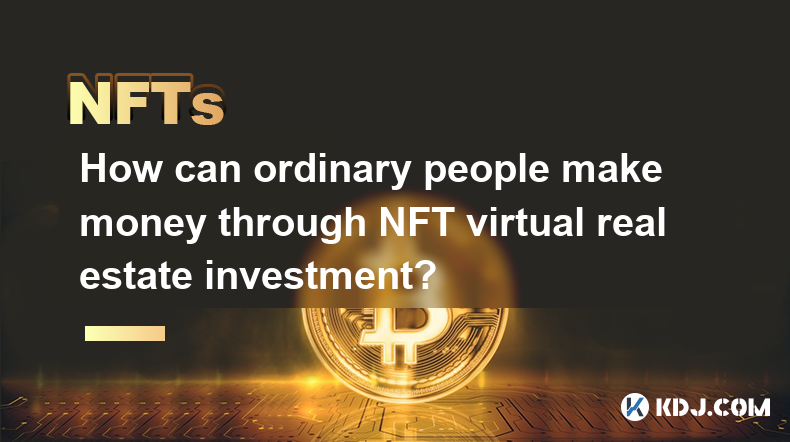
In recent years, Non-Fungible Tokens (NFTs) have transformed the digital landscape, particularly in the realm of virtual real estate. Ordinary people can leverage these digital assets to potentially generate income through various strategies. Understanding the basics of NFTs and how they apply to virtual real estate is crucial. Essentially, NFTs are unique digital tokens that represent ownership of a specific item or piece of content, often stored on a blockchain. When applied to virtual real estate, these tokens grant ownership over virtual land or properties within digital worlds.
To start, individuals need to understand the platforms where NFT virtual real estate is bought and sold. Some of the most popular platforms include Decentraland, The Sandbox, and Cryptovoxels. Each platform offers different opportunities and features. For instance, Decentraland allows users to buy, sell, and develop parcels of land, while The Sandbox focuses on gaming and user-generated content. Researching these platforms and understanding their unique ecosystems is the first step towards successful investment.
Once you've chosen a platform, the next step is to acquire cryptocurrency, as most transactions on these platforms are conducted using digital currencies like Ethereum. You'll need to set up a digital wallet compatible with the platform you're using, such as MetaMask for Ethereum-based platforms. After funding your wallet, you can start browsing the marketplace for available virtual real estate. Keep an eye on the prices and trends to make informed decisions.
When investing in NFT virtual real estate, consider the potential for appreciation. Just like physical real estate, the value of virtual land can increase over time, especially if the platform gains popularity or if the property is located in a desirable area. For instance, land near popular attractions or high-traffic areas within the virtual world tends to be more valuable. Monitoring market trends and understanding the factors that drive value can help you make strategic purchases.
Another way to make money through NFT virtual real estate is by developing the land you purchase. Many platforms allow users to build on their virtual properties, creating unique experiences or attractions that can attract other users. For example, you might build a virtual art gallery, a game, or a social space. By developing your land, you can increase its value and potentially earn income from other users who visit or interact with your creations.
Renting and Leasing Virtual Real Estate
Renting out your virtual real estate is another lucrative option. Just like in the physical world, you can lease your virtual property to other users for a fee. This can be particularly profitable in high-demand areas where users are looking for space to host events, advertise, or simply enjoy the virtual environment. Platforms like Decentraland and The Sandbox have built-in mechanisms for renting out land, making it easier for owners to manage and monetize their properties.
To maximize your rental income, consider the following strategies:
- Set competitive rental prices based on market research to attract tenants.
- Offer unique experiences on your property to differentiate it from others.
- Use social media and other marketing channels to promote your rental space.
Flipping NFT Virtual Real Estate
Flipping, or buying and quickly reselling virtual real estate, is another strategy that can be profitable. This approach requires a keen understanding of market trends and timing. By purchasing undervalued properties and selling them when their value increases, you can generate quick profits. However, this method carries more risk, as the market can be volatile and unpredictable.
To succeed in flipping NFT virtual real estate, consider the following tips:
- Stay informed about market trends and news that could affect property values.
- Look for undervalued properties that have the potential for appreciation.
- Be prepared to act quickly when opportunities arise.
Participating in Virtual Events and Advertising
Virtual real estate can also be monetized through hosting events and advertising. Many platforms allow users to host events on their land, which can attract large crowds and generate income through ticket sales or sponsorships. Additionally, you can lease space on your property for advertising, allowing brands to reach a targeted audience within the virtual world.
To effectively monetize your virtual real estate through events and advertising, consider these strategies:
- Collaborate with influencers or brands to host popular events.
- Design your property to maximize visibility for advertisers.
- Use social media and other platforms to promote your events and attract attendees.
Investing in Virtual Real Estate Funds
For those who prefer a more passive approach, investing in virtual real estate funds can be an attractive option. These funds pool money from multiple investors to purchase and manage virtual properties, distributing the profits among the investors. This can be a less hands-on way to participate in the NFT virtual real estate market while still benefiting from potential gains.
When considering virtual real estate funds, look for the following:
- Funds with a proven track record and experienced management teams.
- Clear investment strategies and transparent reporting.
- Diversification across different platforms and properties to mitigate risk.
Understanding the Risks
While NFT virtual real estate investment offers exciting opportunities, it's important to be aware of the risks involved. The market can be highly speculative, and property values can fluctuate rapidly. Additionally, the regulatory environment for NFTs and virtual real estate is still evolving, which could impact the market in the future.
To mitigate these risks, consider the following:
- Diversify your investments across different platforms and types of virtual real estate.
- Stay informed about regulatory changes that could affect the market.
- Set a budget and stick to it, avoiding over-leveraging your investments.
Getting Started with NFT Virtual Real Estate Investment
For ordinary people looking to enter the NFT virtual real estate market, getting started can seem daunting. However, with the right approach and knowledge, it's possible to navigate this exciting new frontier. Begin by researching the platforms and understanding the basics of NFTs and blockchain technology. Choose a platform that aligns with your interests and investment goals, and start small to gain experience.
As you become more comfortable with the market, consider expanding your strategies to include renting, flipping, hosting events, and investing in funds. Always stay informed about market trends and be prepared to adapt your strategies as the market evolves. With diligence and a willingness to learn, ordinary people can successfully make money through NFT virtual real estate investment.
Common Questions and Answers
Q: What is an NFT and how does it relate to virtual real estate?
A: An NFT, or Non-Fungible Token, is a unique digital token that represents ownership of a specific item or piece of content, often stored on a blockchain. In the context of virtual real estate, NFTs grant ownership over digital land or properties within virtual worlds. These properties can be bought, sold, and developed, similar to physical real estate.
Q: Which platforms are best for investing in NFT virtual real estate?
A: Some of the most popular platforms for NFT virtual real estate investment include Decentraland, The Sandbox, and Cryptovoxels. Each platform offers different features and opportunities, so it's important to research and choose one that aligns with your investment goals.
Q: How can I start investing in NFT virtual real estate?
A: To start investing in NFT virtual real estate, you'll need to choose a platform, set up a compatible digital wallet, and acquire the necessary cryptocurrency. Research the market, identify undervalued properties, and consider your investment strategy, whether it's buying for long-term appreciation, flipping, renting, or hosting events.
Q: What are the risks associated with NFT virtual real estate investment?
A: The risks include market volatility, regulatory changes, and the potential for scams or fraud. It's important to diversify your investments, stay informed about market trends, and set a budget to manage these risks effectively.
Q: Can I make passive income from NFT virtual real estate?
A: Yes, you can make passive income through renting out your virtual properties or investing in virtual real estate funds. These strategies allow you to earn income without actively managing the properties yourself.
Disclaimer:info@kdj.com
The information provided is not trading advice. kdj.com does not assume any responsibility for any investments made based on the information provided in this article. Cryptocurrencies are highly volatile and it is highly recommended that you invest with caution after thorough research!
If you believe that the content used on this website infringes your copyright, please contact us immediately (info@kdj.com) and we will delete it promptly.
- NORDO, a New Crypto Project, Captures Attention by Mixing Humor, Politics, and Polar Bears
- 2025-04-05 13:20:12
- Coreum's role in institutional blockchain adoption
- 2025-04-05 13:20:12
- More Bitcoin, says Michael Saylor as BTC price breaks out
- 2025-04-05 13:15:12
- Solana (SOL) Tests Key Support Levels as Market Gauges the Potential for Either a Major Decline or a Recovery to New All-Time Highs
- 2025-04-05 13:15:12
- Dogecoin (DOGE) Market Trends Could Be Mirroring Larger Economic Shifts
- 2025-04-05 13:10:12
- DePIN Summit Africa 2025 Announced for July 2nd in Mombasa and July 4-5th in Zanzibar
- 2025-04-05 13:10:12
Related knowledge
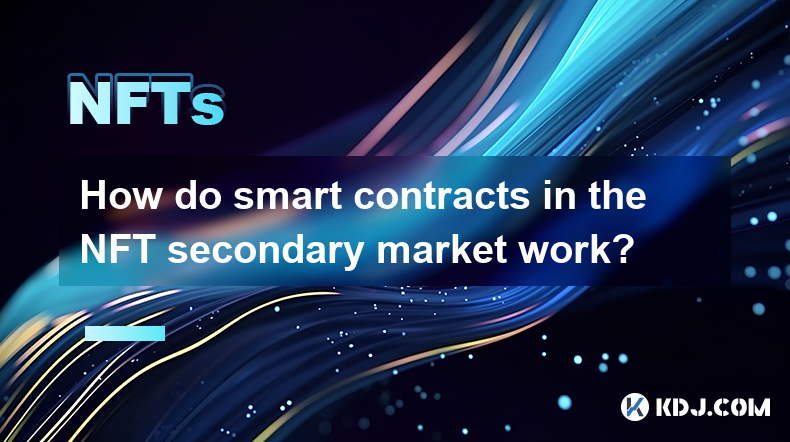
How do smart contracts in the NFT secondary market work?
Apr 03,2025 at 07:14am
Smart contracts play a pivotal role in the NFT secondary market, facilitating seamless transactions and enforcing predefined rules. These self-executing contracts with the terms of the agreement directly written into code are stored on the blockchain. In the context of NFTs, smart contracts automate the buying, selling, and transferring of digital asset...
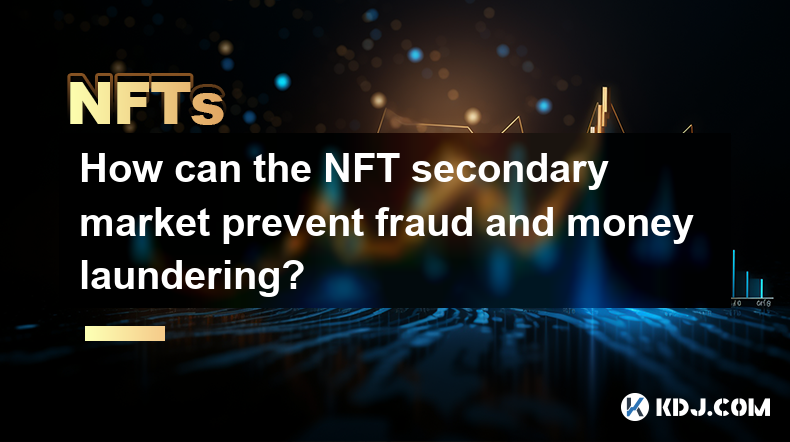
How can the NFT secondary market prevent fraud and money laundering?
Apr 03,2025 at 08:35am
The NFT secondary market has become a thriving hub for digital art and collectibles, but it also faces challenges in preventing fraud and money laundering. To tackle these issues, the market can implement various strategies and technologies to ensure a safer and more transparent trading environment. This article will explore how the NFT secondary market...
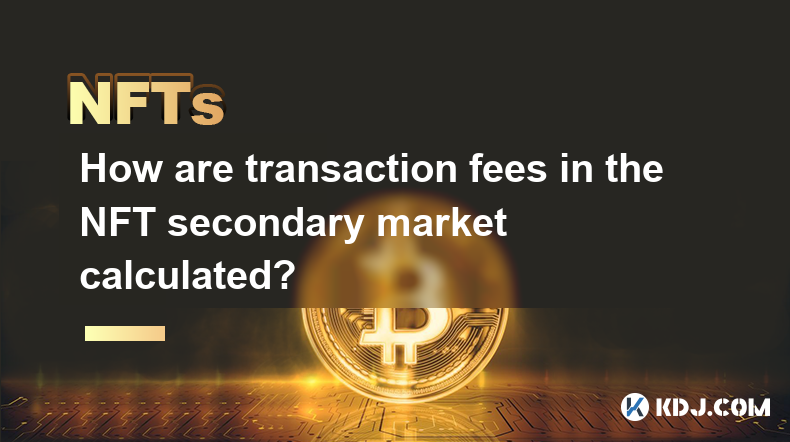
How are transaction fees in the NFT secondary market calculated?
Apr 04,2025 at 05:28am
The calculation of transaction fees in the NFT secondary market is a crucial aspect that both buyers and sellers need to understand. These fees can significantly impact the overall cost of transactions and the profits that sellers can make. In this article, we will delve into the various components that make up these fees, how they are calculated, and w...
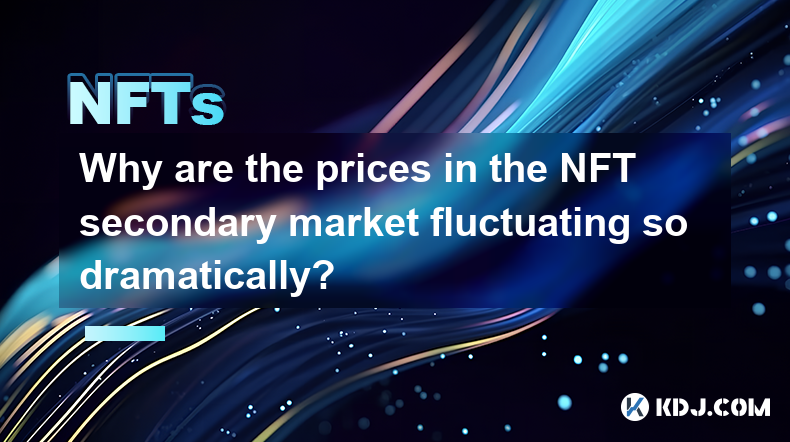
Why are the prices in the NFT secondary market fluctuating so dramatically?
Apr 03,2025 at 10:35pm
The NFT secondary market has been experiencing dramatic price fluctuations, leaving many in the cryptocurrency community puzzled and curious. To understand this phenomenon, it's essential to delve into the factors driving these price movements. From the impact of market sentiment and celebrity endorsements to the role of speculation and the unique natur...
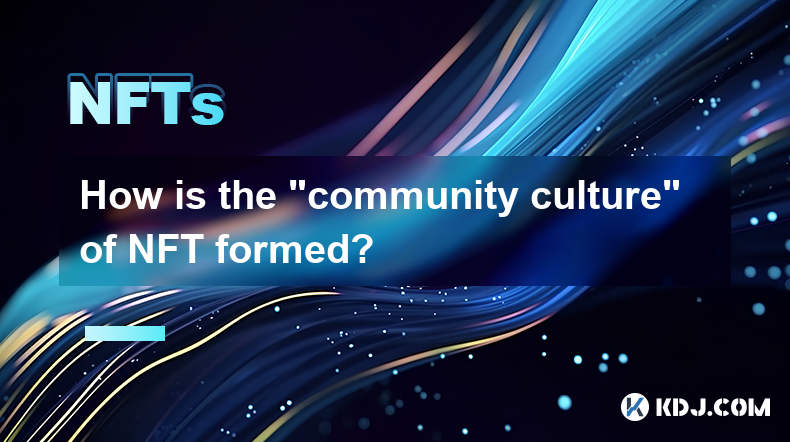
How is the “community culture” of NFT formed?
Apr 03,2025 at 11:07am
The formation of the 'community culture' within the NFT (Non-Fungible Token) space is a fascinating and multi-faceted process. It involves various elements such as shared interests, active engagement, and the creation of a sense of belonging among members. NFT communities often revolve around specific projects or artists, fostering a unique environment ...
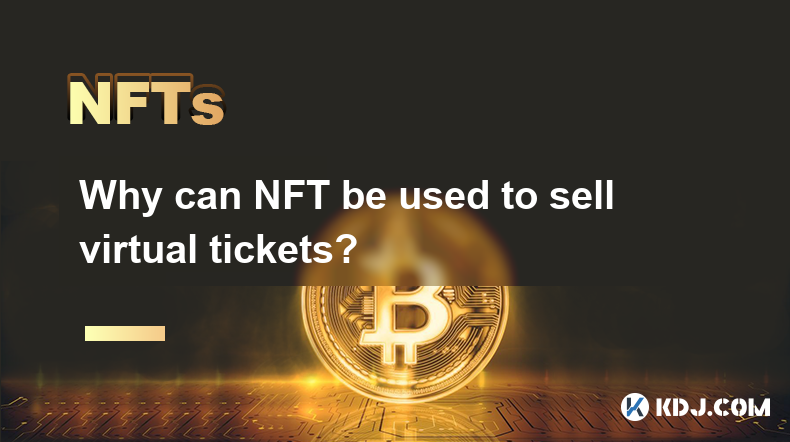
Why can NFT be used to sell virtual tickets?
Apr 03,2025 at 01:35pm
NFTs, or Non-Fungible Tokens, have revolutionized the way we think about digital ownership and value, particularly in the realm of virtual tickets. The primary reason NFTs can be used to sell virtual tickets is their unique nature. Unlike cryptocurrencies such as Bitcoin or Ethereum, which are fungible and can be exchanged on a one-to-one basis, NFTs ar...

How do smart contracts in the NFT secondary market work?
Apr 03,2025 at 07:14am
Smart contracts play a pivotal role in the NFT secondary market, facilitating seamless transactions and enforcing predefined rules. These self-executing contracts with the terms of the agreement directly written into code are stored on the blockchain. In the context of NFTs, smart contracts automate the buying, selling, and transferring of digital asset...

How can the NFT secondary market prevent fraud and money laundering?
Apr 03,2025 at 08:35am
The NFT secondary market has become a thriving hub for digital art and collectibles, but it also faces challenges in preventing fraud and money laundering. To tackle these issues, the market can implement various strategies and technologies to ensure a safer and more transparent trading environment. This article will explore how the NFT secondary market...

How are transaction fees in the NFT secondary market calculated?
Apr 04,2025 at 05:28am
The calculation of transaction fees in the NFT secondary market is a crucial aspect that both buyers and sellers need to understand. These fees can significantly impact the overall cost of transactions and the profits that sellers can make. In this article, we will delve into the various components that make up these fees, how they are calculated, and w...

Why are the prices in the NFT secondary market fluctuating so dramatically?
Apr 03,2025 at 10:35pm
The NFT secondary market has been experiencing dramatic price fluctuations, leaving many in the cryptocurrency community puzzled and curious. To understand this phenomenon, it's essential to delve into the factors driving these price movements. From the impact of market sentiment and celebrity endorsements to the role of speculation and the unique natur...

How is the “community culture” of NFT formed?
Apr 03,2025 at 11:07am
The formation of the 'community culture' within the NFT (Non-Fungible Token) space is a fascinating and multi-faceted process. It involves various elements such as shared interests, active engagement, and the creation of a sense of belonging among members. NFT communities often revolve around specific projects or artists, fostering a unique environment ...

Why can NFT be used to sell virtual tickets?
Apr 03,2025 at 01:35pm
NFTs, or Non-Fungible Tokens, have revolutionized the way we think about digital ownership and value, particularly in the realm of virtual tickets. The primary reason NFTs can be used to sell virtual tickets is their unique nature. Unlike cryptocurrencies such as Bitcoin or Ethereum, which are fungible and can be exchanged on a one-to-one basis, NFTs ar...
See all articles





















































































